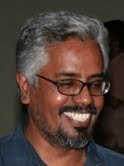a pestering journey
Quest for ‘the pest' C.S. VENKITESWARAN
Festering wounds:A scene from ‘A Pestering Journey'.
K.R. Manoj's documentary ‘A Pestering Journey,' which won the best investigative film award at the 58th National Film Awards, begins with some seemingly simple questions: ‘What is a pest? Is it you? Is it me? Or is it the way you look at me?' As the film progresses, one is constantly confronted with the diabolic dimensions these posers can assume in our life. Obviously, this is not just a film about endosulfan or pesticides, but about how the very notion of ‘the pest’ orders our ways and means of life and builds a system and logic of immutable power around us – an order that condemns certain organismsto death and tampers with the designs of nature. The use of pesticide, in the larger sense, is also a process of ‘othering’ where the powers-that-be decides over what the ‘other’ is and abrogates upon itself the right to liquidate. This manifests in the relationship between men and ‘pests’, between certain professionals in power vis a vis the farmers/residents, between the gigantic machines of industry against the culture of agriculture, or between the chemistry of Science against alchemy of human life. Though the desperate struggle of the people against the use of Endosulfan has been raging in Kasargod district for decades, it was only a few months ago that the issue suddenly attained critical mass and assumed life-or-death immediacy. All this eventually led to its ban, or at least to a decision to phase it out. Better late than never; but the damage it has already wreaked upon human lives and environment is unimaginable and unpardonable. How does one account for the massive suffering it has engendered? The film ponders over this question, by journeying to the sites of pain and suffering. The film begins with the ‘cancer train’ that embarks on a pilgrimage of death everyday at 9.20 pm from Bhatinda town for Bikaner in Rajasthan, and continues through the ruins of the lives of cotton farmers in Punjab, who have paid with their lives for Green Revolution. The second part of the film travels back to Kasargod to portray the festering wounds that this pesticide has left behind in the form of human beings, lives, and ecosystem. Obviously, the new ‘science of linkage’ is only beginning to realize the after-effects of a pesticide that transcends our normal frameworks of space and time. As Ravi Agarwal observes, ‘though all pesticides are poison by definition, some like endosulfan are particularly toxic. They persist in the environment for a long time, accumulate over the food chain and travel long distances globally, contaminating the food in distant lands.. In all such cases, chronic human health impacts are difficult to prove, since they occur over long periods of time, and in very low doses of exposure”. It is this very elusiveness of a poison that masquerades as medicine that makes the struggle against its use extremely frustrating. The film is also about the struggle between the time horizons of ‘scientific’ interventions vis a vis the evanescence of human life and ‘historic’ struggles. Any film about an issue like this and about ‘victims’ can end up as yet another kind of victimization – making ‘them’ into objects for ‘our’ vicarious visual consumption. Pestering journey, in contrast tries to be reflective about the whole process of othering and victimization, by bringing in several perspectives – a montage of ‘pests’ that form part of our houses and farms, the visuals of earlier attempts like archival photographs and a documentary footage, and also play with texts and words - all attempting to liberate the heart-wrenching linearity of the journey and the searing personal testimonies with other presences and complexities. | ||


0 Comments:
Post a Comment
Subscribe to Post Comments [Atom]
<< Home